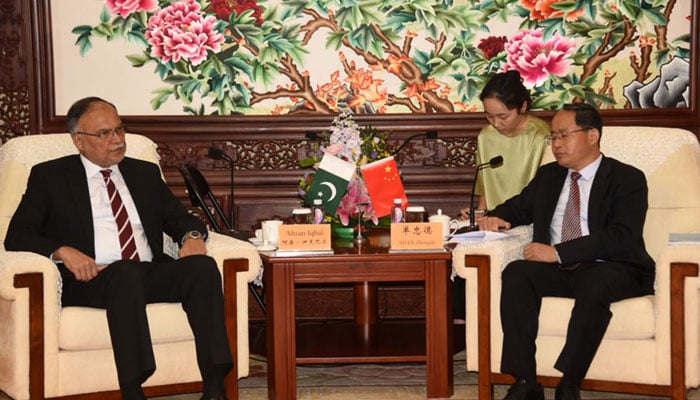Pakistan has set an ambitious goal to send its first lunar mission by 2035, with the country’s national space agency, Suparco, directed to lead the initiative. Planning Minister Ahsan Iqbal announced the plan during a high-level meeting in Beijing with Shan Zhongde, Chairman of China’s Atomic Energy Authority and Space Agency. The discussions centered on enhancing cooperation in space exploration and nuclear energy to support Pakistan’s development objectives.
Under the “Uraan Pakistan” initiative, Iqbal highlighted that space sciences have gained renewed momentum under Prime Minister Shehbaz Sharif’s leadership. He noted that Pakistan recently launched three satellites in collaboration with China and aims to send its first astronaut to the Chinese space station by 2026. The lunar mission represents the next major milestone in the country’s growing space ambitions.
Iqbal also emphasized the urgent need to address climate change by adopting alternative energy sources, particularly in food, water, and health security. He called for deeper Pakistan-China collaboration in peaceful nuclear energy and advanced technologies, including quantum computing, citing the successful K-2, K-3, and C-5 nuclear power plants as key achievements. Pakistan has already established a Quantum Computing Center and is aligning its science and technology sectors with economic priorities.
Shan Zhongde praised Pakistan’s progress under the China-Pakistan Economic Corridor (CPEC) and reaffirmed China’s commitment to supporting Pakistan’s space research and nuclear energy programs. Both sides agreed to further strengthen economic and strategic ties, including educational exchanges for young Pakistani scientists. The collaboration underscores the deepening partnership between the two nations in cutting-edge technological and scientific fields.














